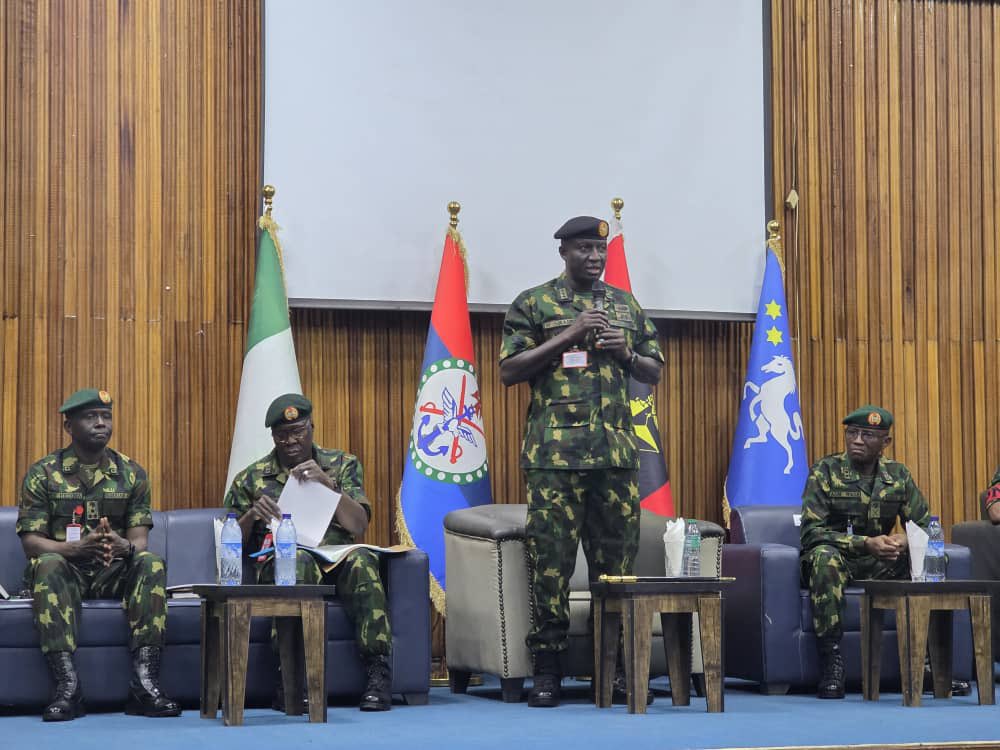KADUNA — In a decisive response to Nigeria’s spiraling security threats, Chief of Army Staff Lt. Gen. Waidi Shaibu announced on Wednesday plans to recruit and train 24,000 additional soldiers over the next year, aiming to dramatically bolster the Nigerian Army’s manpower and operational edge across volatile fronts from the northeast to the northwest.
Speaking during an operational tour of the 1 Division headquarters here, Shaibu—elevated to the top military post just weeks ago by President Bola Tinubu—laid out the ambitious blueprint to officers from second lieutenants to brigadier generals, framing it as an urgent “boots on the ground” imperative amid bandit raids, insurgent ambushes, and kidnappings that have claimed hundreds of lives in recent months.
The initiative, greenlit by Tinubu, leverages three newly approved training facilities designed to churn out battle-hardened troops at an accelerated pace.
“The area of responsibility is vast, and security challenges are dynamic. To meet these threats effectively, we need more personnel,” Shaibu declared, outlining a phased rollout: “In six months, we aim to train 12,000 soldiers from the new facilities. If we operate two streams, we can produce up to 24,000 soldiers ready for deployment.”
The facilities, strategically sited for efficiency, will drill recruits in cutting-edge warfare tactics, advanced weaponry, and leadership essentials, ensuring graduates hit the ground running in high-risk zones like Borno’s counter-ISIS operations or Zamfara’s anti-bandit sweeps.
Shaibu emphasized quality alongside quantity: “This is a desperate time for our nation. The soldiers we train must be ready to tackle multifaceted challenges. We are committed to ensuring they are properly equipped, trained, and led.”
Reaffirming the Army’s “Soldier First” ethos, the COAS pledged ramped-up welfare packages—encompassing better housing, medical care, and family support—to retain talent and motivate the influx. He charged senior officers with mentoring the newcomers, instilling discipline and core values to sustain professionalism amid grueling deployments.
Shaibu’s visit also zeroed in on logistics hurdles and welfare gaps, with frank exchanges on bolstering supply chains for remote outposts and expanding mental health resources for troops scarred by endless patrols.
The timing could not be more acute: Just days ago, bandits snatched 25 schoolgirls in Kebbi— one escaped, 24 remain captive—while ambushes in Kwara and Borno felled soldiers and civilians alike, prompting Tinubu to scrap foreign trips for crisis oversight.
Military analysts hail the surge as a potential game-changer, projecting it could swell active forces by 20%, enabling swifter interventions and wider territorial coverage. Yet skeptics caution that recruitment alone won’t suffice without tackling root causes like arms smuggling and economic despair fueling militancy. As Shaibu wraps his Kaduna briefing, the Army’s clarion call echoes: More boots, yes—but victory demands the full arsenal of strategy, resources, and resolve.

